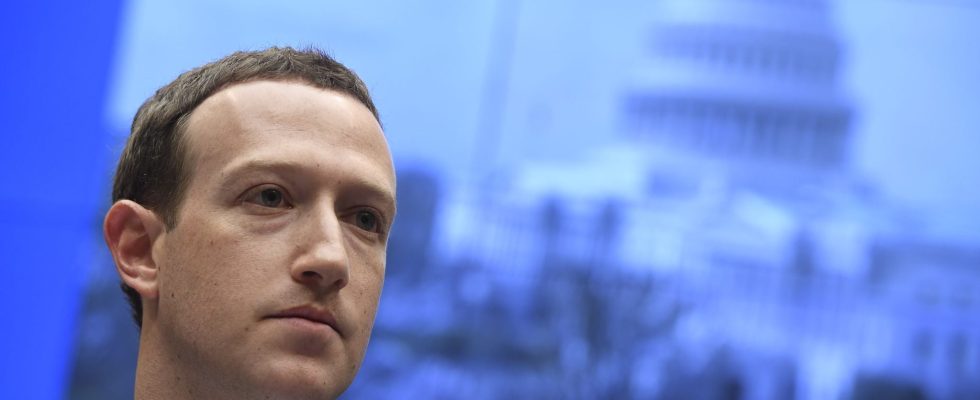Sheera Frenkel remembers signing up for Facebook well. On his college campus in Boston, everyone is talking about a site launched by a 20-year-old geek a few hundred meters away. A sort of digital trombinoscope, born on February 4, 2004: thefacebook.com. “What if this was the new thing?” asks a presenter on CNBC, before asking a few questions to its founder, a certain Mark Zuckerberg, checkered shirt on black t-shirt. So Sheera Frenkel does like everyone her age. She enters her name and chooses a profile photo. Nearly 3 billion people have done the same thing since then. In 2021, the journalist from New York Times releases a bestseller on Facebook: The awful truth.
L’Express: If we look back over the past twenty years, what have been the different stages of Facebook?
Sheera Frenkel: Facebook, in its infancy, was just an experiment led by a student passionate about technology and data, then a company looking for itself. Exuberant adolescence follows: the soaring enrollments, the astronomical growth, the excitement shared by all to connect with others. Then come the first difficulties… which coincide with the international takeoff of the network.
When did the first missteps occur?
I would say the problems started when Mark Zuckerberg started the News Feed. Remember that the first version of Facebook looked more like Wikipedia. To see what your friends were posting, you had to click on their profile page. The News Feed is a revolution. Suddenly, Facebook is filtering and prioritizing what you see from your loved ones. When we look back at the scandals, Cambridge Analytica, Russian hackers, manipulations during electoral campaigns, conspiracy theories like QAnon… everything stems from this choice. The minute you create an algorithm that decides what people see, you create an opportunity for someone to manipulate that algorithm.
Has American public opinion turned against Facebook?
In the United States, the situation changed from 2016. During the presidential campaign, fake news flooded our news feeds. Then the revelations about Cambridge Analytica, the company that obtained and then used user data for political purposes, made people understand their level of vulnerability to social networks.
In 2018, Mark Zuckerberg presented himself to the American Congress. In a tie, with a contrite face, he apologizes and promises to take responsibility for the abuses permitted by Facebook. Did you find him sincere?
The recipe for mea culpa has been a constant with Mark Zuckerberg. Let’s be honest, it’s very… American. With each scandal, he apologized, then moved on, because the power of Facebook allowed him to do so. After the 2016 election, he promised to strengthen the site’s security and privacy by hiring 30,000 people. Eight years later, where are we? We are living in a special year, with a presidential election in the United States, and many others around the world, and Facebook is still largely understaffed. We wonder if the world is not struck by a general amnesia. There is reason to be very worried.
Has Mark Zuckerberg changed in twenty years?
I do not believe. He has always been attracted to power. He seized every opportunity to acquire more and increase the power of the group. He just got older. He now understands what harm Facebook’s repeated errors could have caused, especially since he became a father. Here in the United States, we are in a period where the question of the dangerousness of Facebook for children arises. My sources, particularly in circles close to Mark Zuckerberg, confirm to me that he now takes these subjects to heart, because it also worries him personally.
Father of three children, more concerned about his image, and increasingly invested in his philanthropic activities… Is Mark Zuckerberg on the path to redemption today?
He’s certainly interested in it. Mark Zuckerberg puts himself in historical perspective. He wants to make history. He thinks, for example, of people like Bill Gates, who, I don’t know if people remember, had a series of scandals when he was the boss of Microsoft. Then he created the Bill & Melinda Gates Foundation, he started donating money to great causes, and suddenly he was “Bill the Philanthropist.” I imagine Mark Zuckerberg dreams of a similar fate. He will be 40 this year. He has a very long life ahead of him. I imagine he will do great things with his money that, in his eyes at least, will redeem him.
.
